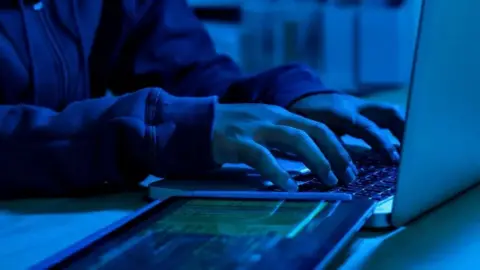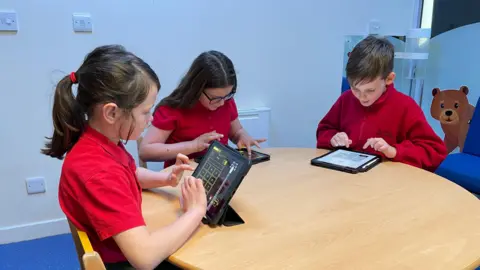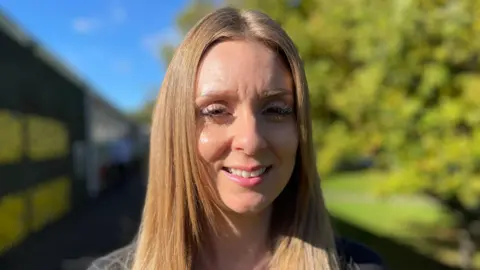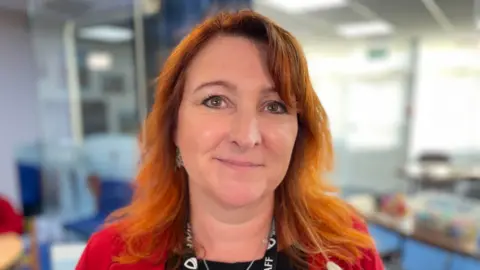Primary school pupils referred to online crime unit
 Getty Images
Getty ImagesFifty young people including children of primary school age have been referred to a specialist policing team that tackles online crime across the East Midlands.
The East Midlands Special Operations Unit (EMSOU) says this was due to the behaviour of some youngsters, who have hacked school websites to post rude messages, or change their grades.
Police are now teaching schoolchildren across the region as young as nine about the dangers of hacking and online fraud.
The BBC joined one class at Carlton Junior Academy in Nottinghamshire, where nine and 10-year-old children were encouraged to use technology safely.

The referrals - which have been made since January 2020 - have been dealt with through a national programme called Cyber Choices.
Children and their parents or carers receive one-to-one support to encourage them to use their computer skills constructively.
Kirsty Jackson, a Cyber Choices officer at Nottinghamshire Police, says children sometimes target school websites to show off.
"Rude messages put on, that's reputational damage," she said. "We've seen files get deleted, grades get changed."
In the most extreme case, a Leicestershire teenager was sentenced to two years in custody for what a judge described as "cyber-terrorism".
The boy was only 15 when he hijacked the personal computers of several leading US intelligence officials from a device in his bedroom.

Ms Jackson says police want to stop children being lured into "really serious" online crime.
"If malicious code is created and used by criminals, the impact could be huge," she said. "That could be used to target government, charities, businesses."
Several thousand primary and secondary schoolchildren across the region have now taken part in Cyber Choices lessons.
Nine-year-old Lexie, from Carlton Junior Academy, said she had learned hacking was "really bad".
"If you hack people, you get into trouble and you might get arrested," she said.
Head teacher Sharon Wood says some children were "very tech-savvy" after spending a lot of time online during the coronavirus pandemic.
"They were being drawn into the dark web," she said. "There is a huge potential for the children to be sucked into something that they really shouldn't be sucked into, not understanding the consequences."

Ms Wood says she was concerned about children getting trapped into phishing (sending fraudulent messages), or spending their parents' money online without permission.
"Our children are very curious around the technology they use and they are brilliant at using the technology," she said.
"So we're trying to prepare them for a very safe future online, both in school and at home."
Follow BBC Nottingham on Facebook, on X, or on Instagram. Send your story ideas to [email protected] or via WhatsApp on 0808 100 2210.
